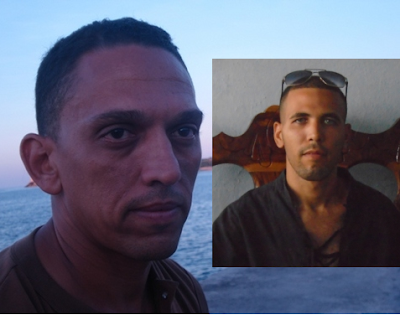
PRO-DEMOCRACY ACTIVISTS ARBITRARILY DETAINEDFive men, all members of a pro-democracy organization in Cuba have been detained in connection with their political beliefs and activities. They have been held by police since 12 August, and have not had access to a lawyer. It is unclear if they have been charged. They could be facing an unfair trial.
On 11 August, seven men, members of the organization Youth for Democracy (Jovenes por la Democracia), were holding a meeting at the home of one of their members, Nestor Rodríguez Lobaina, in the town of Baracoa, in Guantánamo province. Two of them, Yordis García Fournier and Eriberto Liranza Romero, went to find out about return tickets at the bus station, but were detained by police soon after leaving the house at around midday. They were held without charge until 16 August.
When the rest of the group at Nestor Rodríguez's home found out their two colleagues had been detained, they hung banners and posters outside the house protesting against their detention. Within a few hours, a group of supporters of the authorities had gathered outside the house, shouting insults and throwing stones, some of which hit members of Youth for Democracy. At around 3 pm, four more members of the organization arrived at the house. When they saw the mob outside the house, they decided to go in through the back door. There, they were questioned by state security agents and taken into detention. They were released two days later, on 13 August.
On 12 August, state security officials entered the house and detained all five members of Youth for Democracy who were there: Nestor Rodríguez Lobaina and his brother Rolando, Enyor Díaz Allen, Roberto González Pelegrín and Francisco Manzanet. They are still in detention and have not had access to a lawyer. They have been told that they will be charged with "public disorder" (“desorden público”), but it is not clear if charges have yet been filed against them. Once they are charged, they could be tried within hours. It appears their detention is politically motivated.
Roberto González Pelegrín and Francisco Manzanet have been on hunger strike since 12 August in protest at their detention, and are held at the provincial hospital in Guantánamo. According to relatives of Nestor Rodríguez, at 7 am on 13 August, state security officials returned to the house and searched it, even though they did not have a warrant to do so. They confiscated items including books, laptops and mobile phones. They spent 12 hours in the house.
PLEASE WRITE IMMEDIATELY in Spanish or your own language:
- urging the government to release Nestor and Rolando Rodríguez Lobaina, Enyor Díaz Allen, Roberto González Pelegrín and Francisco Manzanet immediately and unconditionally, unless they are to be charged with an internationally recognized criminal offence and tried according to international standards for fair trial;
- calling on the authorities to cease the harassment, intimidation and persecution of citizens who seek to peacefully exercise their right to freedom of expression, assembly and association.
PLEASE SEND APPEALS BEFORE 06 OCTOBER 2010 TO:Head of State and Government
Raúl Castro Ruz
Presidente
La Habana, Cuba
Fax: +53 7 8333085 (via Foreign Ministry); +1 2127791697 (via Cuban Mission to UN)
Email: cuba@un.int (c/o Cuban Mission to UN)
Salutation: Su Excelencia/Your Excellency
Interior Minister
General Abelardo Coloma Ibarra
Ministro del Interior y Prisiones
Ministerio del Interior, Plaza de la Revolución, La Habana, Cuba
Fax: +53 7 8333085 (via Ministry of Foreign Affairs)
+1 2127791697 (via Cuban Mission to UN)
Salutation: Su Excelencia/Your Excellency
And copies to:Ambassador
Mr José Luis Robaina García
Embassy of the Republic of Cuba, Wellington
PO Box 3294,
Wellington 6140
Fax: (04) 473 2958
Email: embajada@xtra.co.nz
Salutation: Your Excellency
Please check with the Urgent Action Team if sending appeals after the above date.
ADDITIONAL INFORMATIONFreedom of assembly, association and expression in Cuba continues to be severely restricted and many arrests have taken place around commemorations of past events and demonstrations. The detentions last usually for few hours after which the detainee is released with a warning not to take part in any dissenting activities, or would otherwise face charges. Short term detention is commonly used by Cuban authorities as a method to intimidate citizens and to deter them from peacefully exercising their right to freedom of expression, assembly and association.
For more information see:
- Restrictions on freedom of expression in Cuba, Report, Index Number: AMR 25/005/2010, 30 June 2010, at:
http://bit.ly/9xnktZ- Rock and repression in Cuba, Video, 7 July 2010, at:
http://bit.ly/c5rtplUA: 186/10 Index: AMR 25/013/2010 Issue Date: 25 August 2010
http://us1.campaign-archive.com/?u=552e2eef05687afb40af93bf8&id=e110b2b61d


















